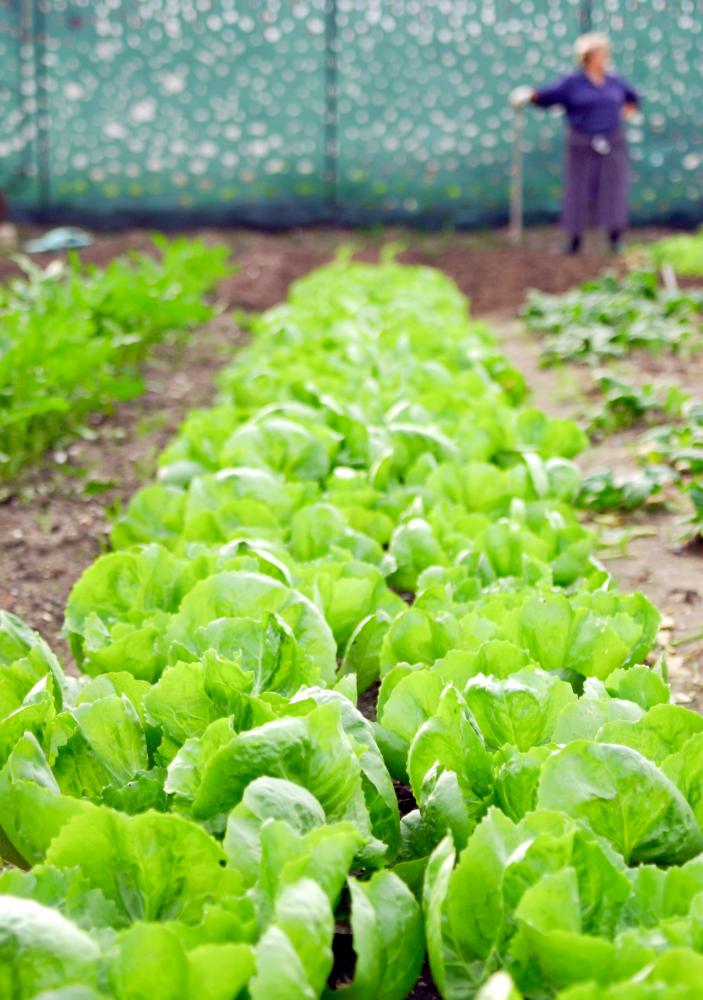
Embracing Sustainable Daily Habits
Transitioning to eco-friendly practices for sustainable living often begins with the choices we make every day. Instead of grabbing a disposable coffee cup each morning, consider investing in a reusable mug that can accompany you on your daily commute. This small change can significantly decrease the amount of waste generated yearly. Similarly, replacing single-use plastic bags with durable canvas shopping totes can help minimize the environmental impact of our shopping activities.
Another significant practice is being mindful of the products we purchase. Opt for items with minimal packaging or those from companies that prioritize sustainable practices. This not only supports businesses that are dedicated to reducing their carbon footprints but also encourages other companies to adopt environmentally friendly policies. By making conscious purchasing decisions, individuals can exert a positive influence on the market.
- Reduce reliance on single-use plastics
- Incorporate reusable products into your routine
- Support companies with sustainable practices
Nurturing Our Planet with Gardening
Planting a garden is a rewarding way to implement eco-friendly practices for sustainable living. Whether you have a sprawling backyard or a modest balcony, cultivating your own plants can lower your carbon footprint, enhance biodiversity, and provide fresh produce. In my experience, tending to a small herb garden not only reduced my trips to the grocery store but also connected me to nature in a profound way.
Focusing on native plants can ensure that your garden thrives in its natural environment–these plants typically require less water and maintenance. They also support local ecosystems by providing habitats for native wildlife. A friend of mine redesigned their garden to include native wildflowers, which attracted a variety of birds and pollinators, transforming their outdoor space into a vibrant sanctuary.
Beyond the immediate benefits, gardening can serve as a bridge to a broader community interested in sustainable living. Joining local gardening clubs or community gardens can offer opportunities to share resources, swap seeds, and learn from fellow enthusiasts committed to ecological preservation.
Energy and Water Conservation
Energy and water conservation are cornerstone elements in the journey toward eco-friendly practices for sustainable living. Turning off lights when leaving a room or utilizing energy-efficient bulbs can reduce electricity consumption. Conducting a home energy audit can reveal surprising sources of energy wastage and guide more efficient practices.
In my professional experience, prioritizing renewable energy sources like solar panels can considerably lower household carbon emissions. During a visit to an eco-conscious facility, I witnessed firsthand the efficiency of solar energy in reducing reliance on traditional power grids, offering both environmental and economic benefits.
Water conservation is equally crucial. Simple habits such as taking shorter showers or installing low-flow fixtures can significantly reduce water use. These actions, combined with methods like rainwater harvesting, contribute to a sustainable lifestyle while ensuring this precious resource is preserved for future generations.
- Switch to energy-efficient appliances
- Explore renewable energy options like solar or wind
- Adopt water-saving techniques in daily routines
Community Integration and Activism
Community engagement is a powerful vehicle for expanding eco-friendly practices for sustainable living. By connecting with like-minded individuals, such as those in Origen, one can amplify efforts to promote environmental consciousness on a larger scale. Whether through organizing local clean-up events, joining environmental advocacy groups, or sharing expertise on sustainable practices, collective action fosters a sense of solidarity and purpose.
From my perspective, participating in community events not only reinforces personal commitment but also inspires others to make incremental changes. By sharing stories and successes, like the impact of an all-organic farmer’s market initiative, communities can motivate each other to adopt more sustainable habits.
Active involvement in environmental policies by engaging in dialogue with policymakers can lead to systemic changes that support sustainable living. Voting for representatives who prioritize environmental issues can lead to meaningful legislative action. At Origen, involvement in such advocacy efforts is both encouraged and facilitated through community platforms dedicated to eco-friendly practices for sustainable living.

Kitchen and Bathroom Innovations
When it comes to reducing plastic waste at home, the kitchen and bathroom are pivotal battlegrounds. Kitchen practices like switching to old glass jars offer both convenience and sustainability. These jars not only keep your ingredients fresh but also circumvent the leaching of chemicals associated with plastic storage. Leveraging reusable alternatives like silicone lids and beeswax wraps invite creativity and a sense of satisfaction as you contribute to positive environmental change.
Meanwhile, the bathroom harbors its own plastic challenges, from soap dispensers to toothbrushes. Tackling this requires a shift towards refillable products and natural materials. Opting for bamboo toothbrushes, a favorite among eco-conscious households, can significantly lower your home’s plastic footprint. Bamboo not only decomposes gracefully but also supports sustainable forestry practices.
Eco-Friendly On The Move
Beyond the home, your daily commute and lifestyle choices offer opportunities for reducing plastic waste. Adopting the habit of carrying a refillable bottle is not merely a trend but a statement of intention. This simple act cuts down on the billions of plastic bottles that end up polluting our oceans annually. Additionally, switching to durable tote bags and investing in a sturdy lunch box can make your daily routine more plastic-free.
Harnessing the power of eco-friendly brands can further amplify your efforts. Seek out companies that champion sustainability and embody practices like using recycled materials or offering product refills. By supporting these businesses, you not only reduce your plastic footprint but also signal demand for environmentally responsible business practices.
Plastic-Free in Living Spaces
Our living spaces often hide an array of unsuspected plastic items, from polyester in our wardrobes to single-use items in garages. To transcend these challenges, start by building a greener wardrobe. Opt for clothes made from natural fibers like organic cotton or linen, which lessen the burden on the environment. Embrace secondhand shopping to minimize waste and discover unique, timeless pieces.
In garages, the plastic battle can take on industrial proportions. Rethink how you organize tools and supplies by investing in bulk purchasing or reusable containers. Even small shifts such as replacing disposable cleaning cloths with washable alternatives can lead to substantial reductions in waste over time. As these small changes accumulate, they create a ripple effect that extends beyond your immediate environment.
For Origen Network, promoting the practice of reducing plastic waste at home is a commitment to living harmoniously with our planet. Integrate these strategies into your life and join a community that cherishes sustainability as a pathway to freedom and fulfillment. Your efforts matter, and together, we can make a meaningful impact.
Soil Health and Fertility
At the core of organic gardening is the nurturing of soil health, a practice that aligns with Origen’s commitment to living harmoniously with the Earth. The vitality of your soil directly influences the robustness of your plants, so prioritize its texture and fertility. A well-draining composition of sand, silt, clay, and organic matter sets the foundation for a thriving garden.
Consider adding compost to enrich the soil, an act both beneficial to plants and emblematic of Origen’s eco-friendly approach. Healthy soil boasts a loose, crumbly structure that enhances root penetration, water drainage, and air circulation. Envision your garden soil as a living ecosystem, teeming with beneficial microorganisms that contribute to plant health.
For optimal soil fertility, focus on achieving a balance of organic matter and maintaining the appropriate pH levels. Using natural amendments like lime or sulfur can help in adjusting soil pH, a critical step in organic gardening. Incorporate these organic gardening tips to promote a balanced and nutrient-rich garden environment, central to Origen’s holistic vision for sustainable living.
Pest Management Naturally
In harmony with Origen’s holistic approach, organic pest control in gardening requires an understanding of integrated pest management (IPM). IPM is about combining biological, cultural, physical, and sometimes chemical strategies to manage pests. Consider rotating crops and using pest-resistant plant varieties as primary defenses against unwanted garden invaders.
Keeping tools clean and introducing beneficial predator organisms are defensive practices underlined by Origen’s philosophy of empowerment and natural alignment. This strategy not only protects plants but also fosters a balanced ecosystem. Implementing these organic gardening tips can help prevent pest outbreaks while preserving the garden’s natural equilibrium.
Some organic gardeners find success in employing barriers like row covers or using natural deterrents such as neem oil. These eco-friendly methods align with Origen’s dedication to sustainable practices and the wellbeing of our planet.
Weed Control and Companion Planting
Weeds can be a persistent challenge, yet they also offer an opportunity to practice resilience and creativity, qualities cherished by Origen. Employing natural methods like mulching or manual weeding helps to control these unwanted plants without resorting to harmful chemicals.
Companion planting is another effective organic gardening tip to consider. By planting certain species together, you can enhance growth, repel pests, or improve soil fertility. For example, marigolds and tomatos are popular companions known to deter pests and promote growth.
For those looking to further embody Origen’s principles of interconnectedness, consider integrating plants that naturally suppress weeds by outcompeting them. This practice not only cultivates a healthy garden but also fosters a vibrant community of plants, much like the supportive network Origen strives to create.
Embrace these strategies and watch your garden flourish, using principles that resonate with personal growth and self-sufficiency, just as Origen empowers individuals to thrive in their personal journeys.

What are 10 ways to be more sustainable?
Embarking on a journey towards sustainability can be a transformative experience, both personally and for the planet. Here are 10 practical ways to integrate sustainability into your daily life:
1. Adopt a plant-based diet: Reducing meat consumption can significantly lower your carbon footprint. Even small changes, like one meat-free day a week, can make a big difference.
2. Use renewable energy: Transitioning to solar or wind energy for your home can reduce reliance on fossil fuels and lower electricity bills over time. Origen emphasizes renewable options in its eco-friendly practices.
3. Reduce, reuse, recycle: Aim for less waste by repairing items instead of discarding them, donating clothes, and recycling diligently.
4. Conserve water: Simple actions like fixing leaks, taking shorter showers, and collecting rainwater can save water and reduce utility costs.
5. Use sustainable transportation: Consider walking, biking, carpooling, or using public transport to cut down on emissions.
6. Support sustainable brands: When shopping, choose companies that prioritize ethical production and sustainable materials.
7. Switch to eco-friendly products: Use biodegradable cleaning products, bamboo toothbrushes, and reusable containers.
8. Engage in community activities: Join local clean-up drives or community gardens to directly impact your local environment and inspire others.
9. Educate yourself and others: Read up on sustainability, attend workshops, and share your knowledge with friends and family.
10. Be mindful of energy use: Use energy-efficient appliances and turn off lights when not needed to conserve energy.
These practices not only benefit the environment but can improve your quality of life. How do you see yourself integrating these suggestions into your daily routine?
What are the eco-friendly practices?
Eco-friendly practices encompass a wide range of actions designed to minimize environmental impact. At the heart of these practices are principles like reducing waste, conserving resources, and supporting biodiversity. For instance, using reusable bags or bottles, opting for products with minimal packaging, and recycling are all foundational eco-friendly habits.
Additionally, choosing renewable energy sources, engaging in sustainable agriculture like permaculture, and opting for public transport are pivotal. At Origen, we recognize the importance of combining these actions with community support and personal responsibility to drive meaningful change.
As someone who’s passionate about sustainability, consider the broader impact of your lifestyle choices. How do you think these practices can influence both your local environment and global ecosystems?
What are some sustainable practices that help the environment?
Sustainable practices that positively impact the environment often focus on minimizing resource use and promoting ecological health. One pivotal method is composting organic waste, which reduces landfill contributions and enriches soil. Another is growing your own food through organic gardening; this can shrink your carbon footprint and enhance local biodiversity.
Moreover, choosing public transportation or carpooling can cut down individual carbon emissions. Tree planting, another effective practice, absorbs carbon dioxide and helps combat climate change. At Origen, we believe in the power of community-driven practices, such as shared gardens or local clean-ups, to both foster environmental stewardship and strengthen social bonds.
Reflecting on these practices, how do you see them contributing to a healthier planet? Are there particular actions you’d like to explore further?
What are five eco-friendly habits?
Integrating eco-friendly habits into your daily routine can be simple yet impactful. Here are five habits to consider:
1. Carry a reusable water bottle: This reduces plastic waste and ensures you stay hydrated on the go.
2. Shop locally: Supporting local farmers and businesses reduces transportation emissions and supports the community economy.
3. Limit energy consumption: Use LED bulbs, unplug electronics when not in use, and leverage natural light whenever possible.
4. Choose eco-friendly transport: Walk, cycle, or use public transit more often to reduce your carbon footprint.
5. Mindful eating: Reduce food waste by planning meals, storing food properly, and composting scraps.
These habits can align seamlessly with your lifestyle and contribute to a more sustainable world. How would incorporating these habits change your daily life?
What are some tips for reducing plastic waste at home?
Reducing plastic waste is crucial for environmental health, and it starts at home with a few simple strategies. Utilize glass or stainless steel containers for food storage; this not only avoids plastic leaching but also maintains food freshness. Consider using cloth bags for shopping and storing produce.
Eliminate single-use plastics by investing in reusable silicone lids or beeswax wraps for covering dishes. Switching to biodegradable cleaning products and purchasing bulk items can also diminish packaging waste.
At Origen, we encourage exploring these alternatives to foster a healthier living environment. How might these changes influence your perception of sustainability and inspire others in your community to follow suit?
What are some essential organic gardening tips?
Organic gardening is a rewarding endeavor that harmonizes with nature’s processes. Start by building healthy soil rich in organic matter, which supports plant growth and reduces the need for chemical fertilizers. Composting kitchen waste is an excellent way to enrich your soil naturally.
Practice crop rotation and companion planting to fend off pests and enhance biodiversity. For example, planting marigolds around vegetables can naturally deter unwanted insects. Incorporating natural pest management techniques, such as using neem oil or introducing beneficial insects, can maintain a balanced ecosystem.
Origen champions these practices as they align with our commitment to ecological harmony. What insights have you gained from your gardening experiences, and how do they echo the principles of sustainable living?
Resources
- Environmental Protection Agency – The Environmental Protection Agency (EPA) website provides valuable information on environmental issues, sustainability practices, and resources for individuals and communities to promote eco-friendly living.
- Natural Resources Defense Council – The Natural Resources Defense Council (NRDC) is a non-profit organization dedicated to environmental protection. Their website offers insights on sustainable living, conservation efforts, and advocacy for a greener future.
- National Wildlife Federation – The National Wildlife Federation (NWF) focuses on wildlife conservation and habitat protection. Their website provides resources on gardening for wildlife, sustainable practices, and ways to support biodiversity.
- U.S. Department of Energy – The U.S. Department of Energy website offers information on energy efficiency, renewable energy technologies, and tips for reducing energy consumption in daily life.
- Centers for Disease Control and Prevention – The Centers for Disease Control and Prevention (CDC) website includes resources on water conservation, public health initiatives, and tips for maintaining a healthy environment.